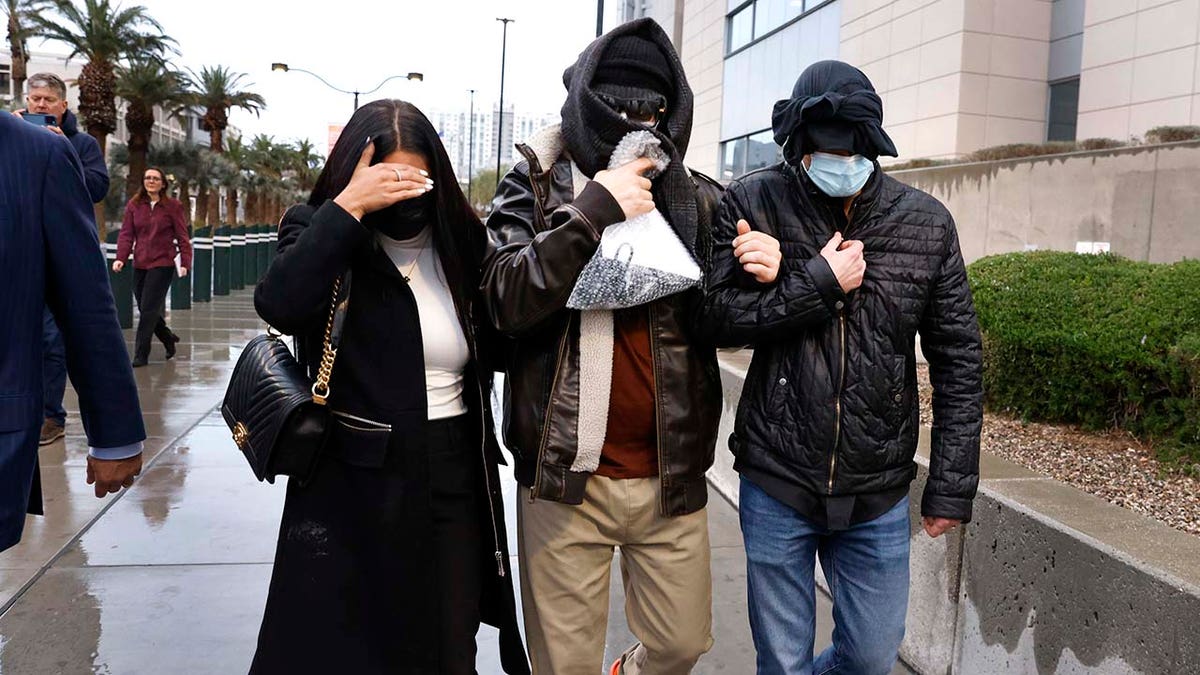Ex-FBI informant arrested again, accused of lying about Bidens
Rep. Russell Fry, R-S.C., on why the FBI informant arrest doesn’t affect the overall Biden family investigation and says there are still concerns with Hunter and the rest of the Biden family.
The explosive indictment of former FBI informant Alexander Smirnov has caused many Americans to once again question what is going on at the FBI. Smirnov is alleged to have lied to FBI agents regarding bombshell accusations he reported involving highly sensitive matters which were then documented in an FBI form FD-1023. According to news reports, Smirnov was re-arrested on Thursday, February 22.
How did this confidential human source (CHS) slip through the cracks? I did not work this case and was never privy to any facts or details and even if I had, I would never divulge such information. And any person charged is presumed innocent until proven guilty in a fair court of law.
What I do know, speaking in generalities, is this: For the FBI, just like any other law enforcement agency, human intelligence and informants are vital because they often have their finger on criminality. They can shed light on dark situations and provide law enforcement with a glimpse into nefarious activity going on in their community and around the world. Thus, it is not shocking when a CHS’s background is not squeaky clean. But FBI agents know this and proceed with caution, accordingly.
EX-FBI INFORMANT CHARGED WITH LYING ABOUT BIDENS' BUSINESS DEALINGS RE-ARRESTED
Sources have a plethora of motivations to assist law enforcement, such as love of country or to receive potential points for cooperation that minimize their own criminal liabilities. We hope their motives are pure, but that’s not always the case.

Former FBI informant Alexander Smirnov, center, leaves the courthouse on Tuesday, Feb. 20, 2024, in Las Vegas. Prosecutors say that Smirnov, who is charged with making up a multimillion-dollar bribery scheme involving President Joe Biden, his son Hunter and a Ukrainian energy company, had contacts with Russian intelligence-affiliated officials. (Bizuayehu Tesfaye/Las Vegas Review-Journal via AP)
Maintaining a CHS’s confidentiality is of preeminent importance to a special agent because, as the idiom goes, "snitches get stiches." The handler knows a CHS’s life may be on the line. The CHS's identity was put on full display in this recent indictment, which will likely hamper agents' ability to recruit valuable sources going forward. The handler must delicately protect and stringently vet the information the source provided. Agents often must prove an allegation without the original source in order to protect the source's identity.
Obviously, information reported by a CHS is not always truthful or verified — as the country witnessed when the now famous Steele dossier was investigated and found to be false. But in that instance, the CHS was notably never charged.
A source is only as valuable as his or her integrity. False claims alleged by a CHS may send law enforcement down rabbit holes, waste valuable time and resources, sway elections or wreak havoc on those under investigation. But typically, a source who is found to lack veracity in their reporting is simply closed out. Rarely are they indicted for lying to a federal agent.
As stated on page two, paragraph four of the publicly available indictment of recently charged Smirnov, "The Defendant was admonished by the Handler that he must provide truthful information to the FBI when he first became a CHS in 2010 and on multiple occasions thereafter."
And then it proceeds to list 20 separate dates, beginning on October 1, 2010, and ending on September 29, 2023, when the FBI agent "Handler" admonished the CHS to provide truthful information. This defendant was warned on September 27, 2023, when interviewed by FBI agents that he must tell the truth, and they advised him of Title 18 U.S.C. 1001 which, in layman terms, states that lying to a federal agent is a crime. On page 3, paragraph 6, it states that, despite the admonishments, the defendant provided false information to the FBI. That is a crime.
The indictment refers to FBI Pittsburgh closing an assessment around August 2020 regarding allegations the same CHS had made after taking all possible investigative steps, and FBI Pittsburgh recommended the case should be closed. It appears information the CHS provided did undergo partial vetting prior to the 2020 election, but why didn't it merit an indictment then? Years later, the CHS is now being indicted for information that should have already been fully vetted.
CLICK HERE FOR MORE FOX NEWS OPINION
So, allegedly, Smirnov lied to the FBI. But what about the rest of the investigation? Is it over? Investigators know you never hang your hat on one CHS or one piece of evidence. The key is to have various types of evidence that corroborate each other, such as bank records, multiple witness statements, etc.
Maybe the CHS’s information is truthful and is the smoking gun in the case, or maybe it is not factual at all. But it does not necessarily mean the case will be closed as there may be other additional mounting evidence to prove the original allegation.
Maintaining a CHS’s confidentiality is of preeminent importance to a special agent because, as the idiom goes, "snitches get stiches." The handler knows a CHS’s life may be on the line. The handler must delicately protect and stringently vet the information the source provided.
Logically, one would believe that if the FBI chose to keep a CHS open for over 10 years after having paid him large sums of money, it was because he was deemed highly credible. As the saying goes – trust but verify.
CLICK HERE TO GET THE FOX NEWS APP
The FBI’s primary responsibility is to gather evidence and verify information, including vetting their CHS. Here it seems they failed at verifying in a timely manner. Further questioning and closing the CHS came a bit too late. And likely only because a special counsel was appointed.
It looks like FBI agents may be tasked once again with a Virtual Academy or internal training to learn from this incident. And recruiting a CHS was just made substantially more difficult.











































